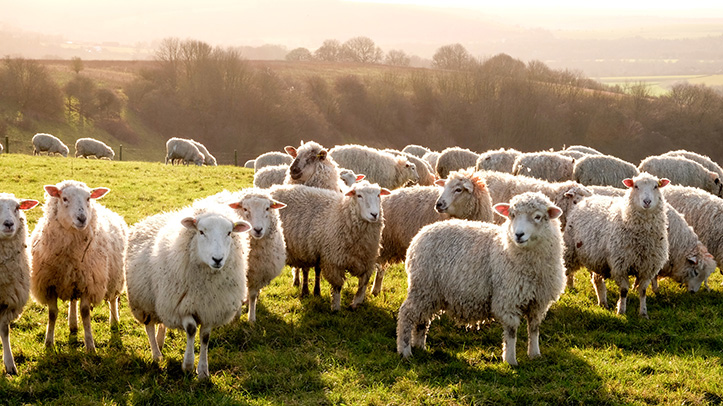SCOPS is delighted to be part of a new project investigating the resistance of scab mites to ML injectables. The project will be led by Moredun, with support from Glasgow University, SRUC and SCOPS, and will build on the success of the ‘For Flock’s Sake’ and other projects working to tackle sheep scab throughout the UK.
The Moredun Research Institute, in collaboration with partners, has been awarded a £1.2 million grant to explore the mechanism of resistance to the macrocyclic lactone (ML) injectables in the sheep scab mite, Psoroptes ovis, and how this resistance has spread across the UK.
The three-year award involves project partners from the University of Glasgow, Scotland’s Rural College (SRUC), and the Sustainable Control of Parasites in Sheep (SCOPS) Industry Group.
Project lead, Dr Stew Burgess, Moredun Research Institute, said: “The £1.2m award is a pivotal investment in our mission to combat the growing challenge of macrocyclic lactone resistance in the sheep scab mite, P. ovis.
“Sheep scab remains a significant threat to livestock health and welfare, imposing substantial economic burdens on farmers across the UK. With this funding, we aim to decode the genetic basis of resistance and its spread, providing the agricultural community with vital tools and updated strategies to manage this pervasive issue effectively.
“This project strengthens our collaborative efforts with partners at the University of Glasgow and SRUC and reinforces Moredun’s commitment to pioneering research that drives real-world impact.”
Sheep scab, a highly contagious disease caused by the ectoparasitic mite P. ovis., represents a significant welfare and economic concern for UK livestock production, costing the industry between £80-200m annually.
Current control strategies rely on organophosphate (OP) sheep dips and ML injectables (ivermectin, doramectin, and moxidectin). However, overreliance on ML injectables for controlling gastrointestinal nematodes (GIN) and sheep scab has led to the emergence of ML-resistant parasites, posing a significant threat to sheep health and welfare. While OP dipping is an effective alternative, it is associated with more complex safety requirements for both operators and the environment and if overused scab mites could also develop resistance to OP.
“Maintaining two effective control methods is essential for our ability to control scab in the future”, said Lesley Stubbings of SCOPS.
“Understanding the basis of resistance in the MLs, together with the potential for early detection, will allow the industry to develop strategies to manage and slow resistance.”
This new project will explore the mechanisms underlying ML resistance in P. ovis. The project aims to provide updated advice and guidelines on sheep scab management and develop novel diagnostic tools to track the spread of resistance, ensuring the optimum use of the available treatments.
As Dr Jenni McIntyre, part of the research team at the University of Glasgow explained: “ML resistance is complex and poses a real challenge to farmers in controlling both GIN and scab. This exciting project will be the first to apply cutting-edge genomic tools to understand ML resistance in sheep scab mites.”
To produce this new guidance, the project will use new tools, including samples of P. ovis mites that are either resistant or susceptible to ML treatment and a detailed map of their genes. The project team will study these samples to understand how ML resistance has developed and then track how this resistance has spread across the UK.
“Translating basic research on the understanding of drug resistance in parasites to improve control strategies has undergone huge progress in recent years,” said project partner, Jack Hearn, SRUC.
“We can now target parasites of veterinary importance like the mites that cause Sheep scab with a variety of research methods. This will lead to much swifter recommendations for improved scab management than previously possible to the benefit of animal welfare and farmers.”


